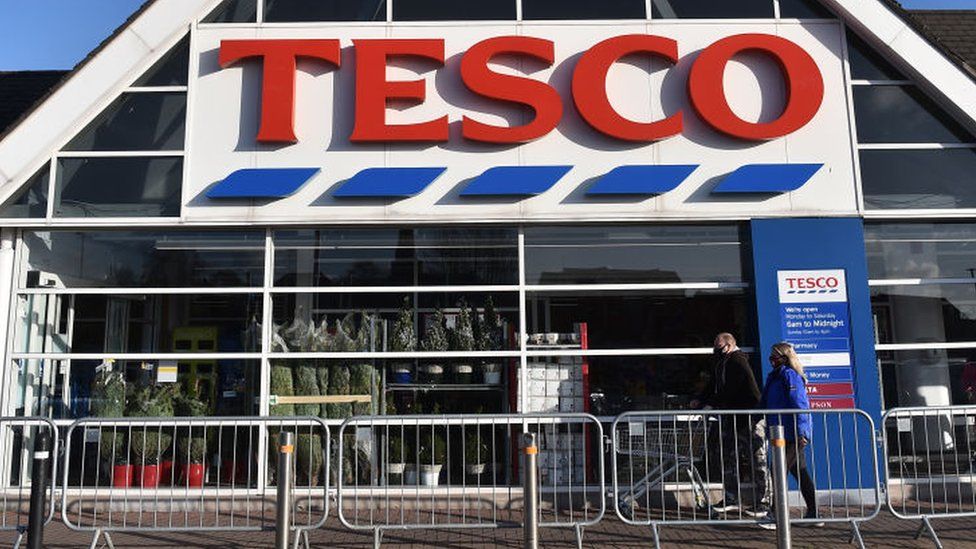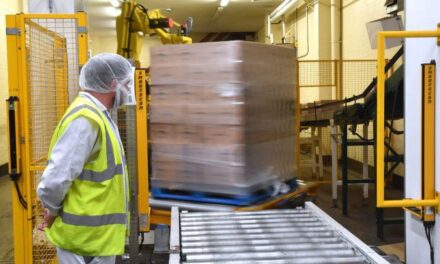Tesco profits more than trebled last year amid rising sales and a fall in Covid-related costs.
The UK’s largest supermarket chain reported pre-tax profits of £2.03bn, up from £636m the previous year.
Group sales, excluding fuel, rose by 2.5% to £54.8bn, while in the UK retail sales rose by 2.3% year on year.
However, Tesco warned of “significant uncertainties” and said performance would be affected by the the investment needed to keep prices down.
Chief executive Ken Murphy said: “Clearly, the external environment has become more challenging in recent months.
“Against a tough backdrop for our customers and with household budgets under pressure, we are laser-focused on keeping the cost of the weekly shop in check – working in close partnership with our suppliers, as well as doing everything we can to reduce our own costs.”
Mr Murphy added that Tesco was managing to keep the rise in the cost of living a “bit under the number for the overall market”.
However, products that require a lot of energy to produce are experiencing the highest cost pressures. Tesco accepted a 20% cost price increase in milk from its suppliers less than two weeks ago. However, the UK’s largest dairy Arla recently warned that with cost increases of some 36%, farmers faced tough cost challenges.
Mr Murphy said strong product availability had been maintained but added that products such as sunflower oil were a challenge due to the war in Ukraine.
- Tesco staff to see pay rise to £10.10 an hour
- Worst to come for food price rises – Tesco
It is also said customer behaviour is also returning to more normal patterns as shoppers rely less on supermarket trips as the UK emerges from the pandemic.
Commenting on Tesco profits, chief executive of Retail Economics, Richard Lim said the increases were “mightily impressive”.
As the cost of living crisis continues, Mr Lim said many shoppers would be trading down to own-label brands, switching retailers and scaling back on premium purchases.
However, he said Tesco was “well-positioned”, given the “competitive advantage” offered by its loyalty scheme and “meaningful negotiating power” it had with suppliers.
Tesco online business was lower as sales declined by 6.5% because some customers chose to return to shopping in stores as the pandemic eased.




